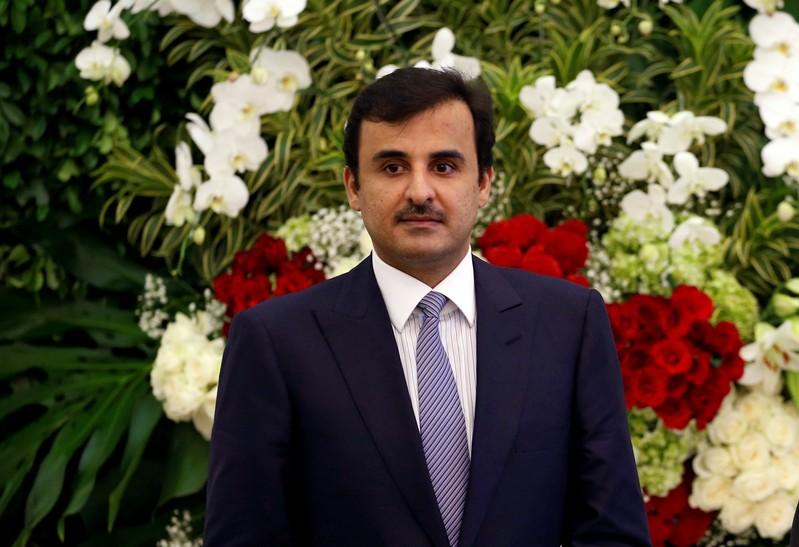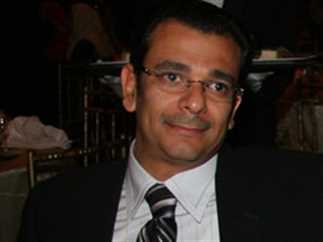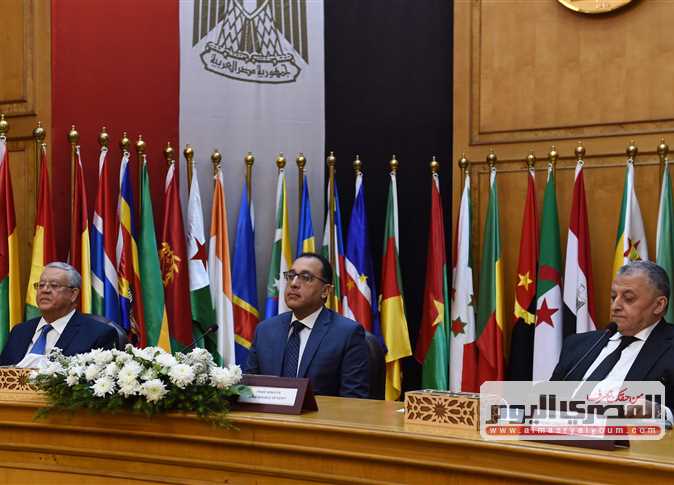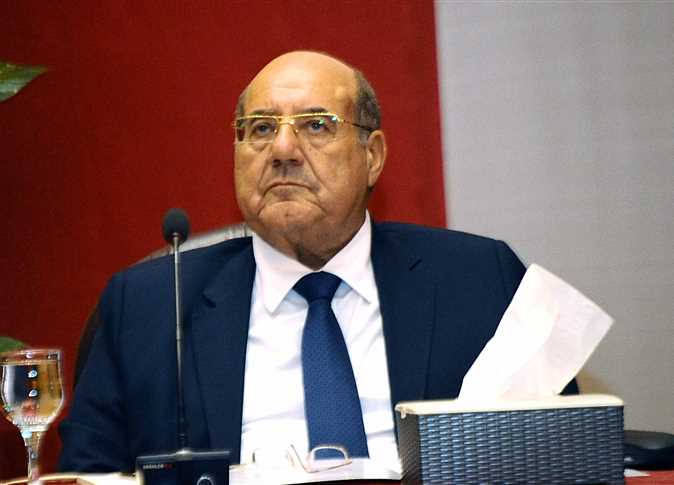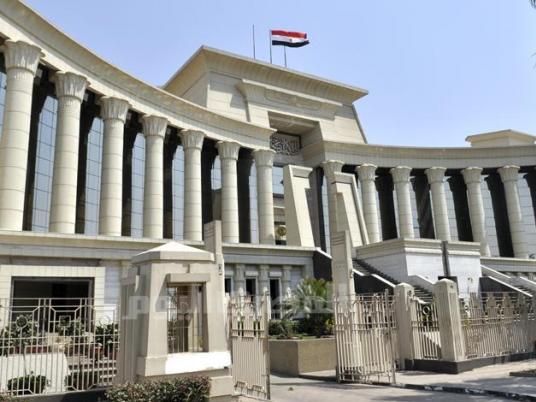
The Supreme Constitutional Court released a statement Sunday condemning the protests that blocked judges from entering the building to hear lawsuits challenging the Constituent Assembly and the Shura Council, describing the events as a “dark day” for the judiciary.
“The session on reviewing lawsuits filed [in] the Supreme Constitutional Court took place on 2 December 2012, which [will be] a dark day in history of the Egyptian judiciary throughout the ages. As judges were close to the court in the morning, they found protesters surrounding the building, blocking its gates, climbing its fence and chanting anti-judge slogans inciting people against [the judges]. Judges couldn’t access the court, as this would have endangered them due to the unstable security condition,” the court’s statement read.
“The Supreme Constitutional Court’s judges have no choice other than declaring their inability to perform their sacred duties in such an atmosphere full of hatred and the desire for revenge; hence the judges announce [the] suspending the court sessions until they are able to resume their message and review lawsuits filed to the court without being exposed to any psychological or physical pressure.”
Consideration of both cases has been postponed indefinitely, with no new or follow-up sessions scheduled as of yet.
SCC vice president Tahani al-Gebali also accused the police forces of failing to protect the judges and court employees, which led to them being unable to enter the building.
Gebali told Al-Masry Al-Youm that the head of the court spoke on Saturday with Interior Minister Ahmed Gamal Eddin to ensure that the police forces would supply the personnel needed to secure the judges’ entry. However, the police did not provide the necessary protection, she said, adding that she did not know if this failing was intentional or not.
Gebali said she received notification from major security leaders warning her of the danger trying to enter the court at this time, or even being in the vicinity of the building.
The SCC has also received threats of being burnt and its members assassinated, according to Gebali.
The Interior Ministry said in a statement on Sunday that government is committed to protecting and securing the headquarters of the SCC, as well as all vital national institutions.
The security forces protecting the court headquarters are in control of the entrances and exits of the building, the statement said, to secure the entry of the judges and all court personnel. The statement claimed that court workers, some judges and lawyers have been able to enter the court because of this protection.
Freedom and Justice Party head Saad al-Katatny called on the demonstrators in front of the SCC not to disrupt the work of the court or attack the judges, adding that the party rejects the use of violence.
Katatni addressed demonstrators in a Facebook post demanding that they abide by the rules of peaceful protest as prescribed by law.
The development came as the court was to begin consideration of the two cases that have set the court on a collision course with Morsy and his supporters. Relations between the president and the Supreme Constitutional Court have been chilly since the court dissolved the People's Assembly in June, with Morsy's supporters accusing the court of fealty to former President Hosni Mubarak's regime and decrying its verdicts as politically motivated.
The court, in turn, has rejected such accusations as "mere lies." Morsy's controversial constitutional declaration granting himself broad powers and immunizing the Shura Council and Constituent Assembly from dissolution has further raised the ire of much of the judiciary.
One of the lawsuits under consideration by the court challenges the law governing the formation of the Constituent Assembly, which the now-dissolved People's Assembly had passed in July, while the other challenged the constitutionality of the election law for the Shura Council. The Constituent Assembly and both houses of Parliament are heavily dominated by Islamist allies of Morsy.
The court’s Commissioners Authority issued a report on 19 November recommending that the Constituent Assembly remain in place, but it is unclear whether or not the report will have any bearing on the court's verdict.

